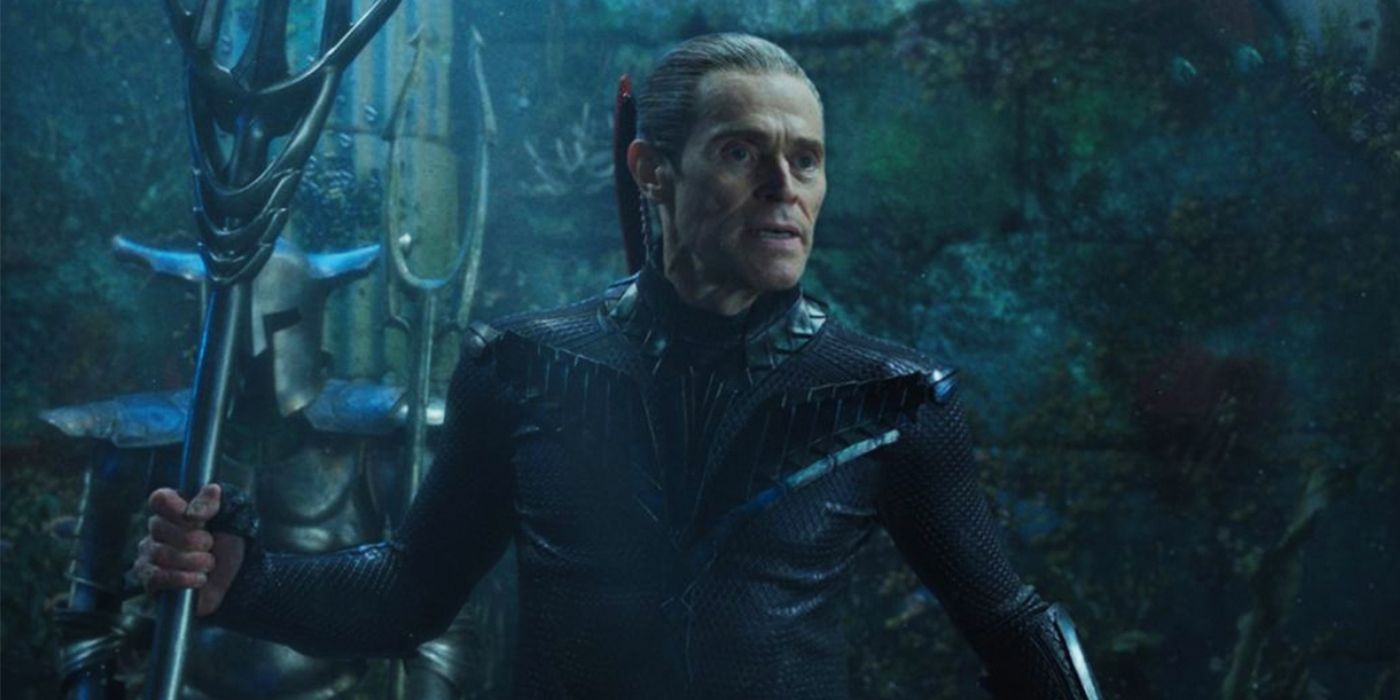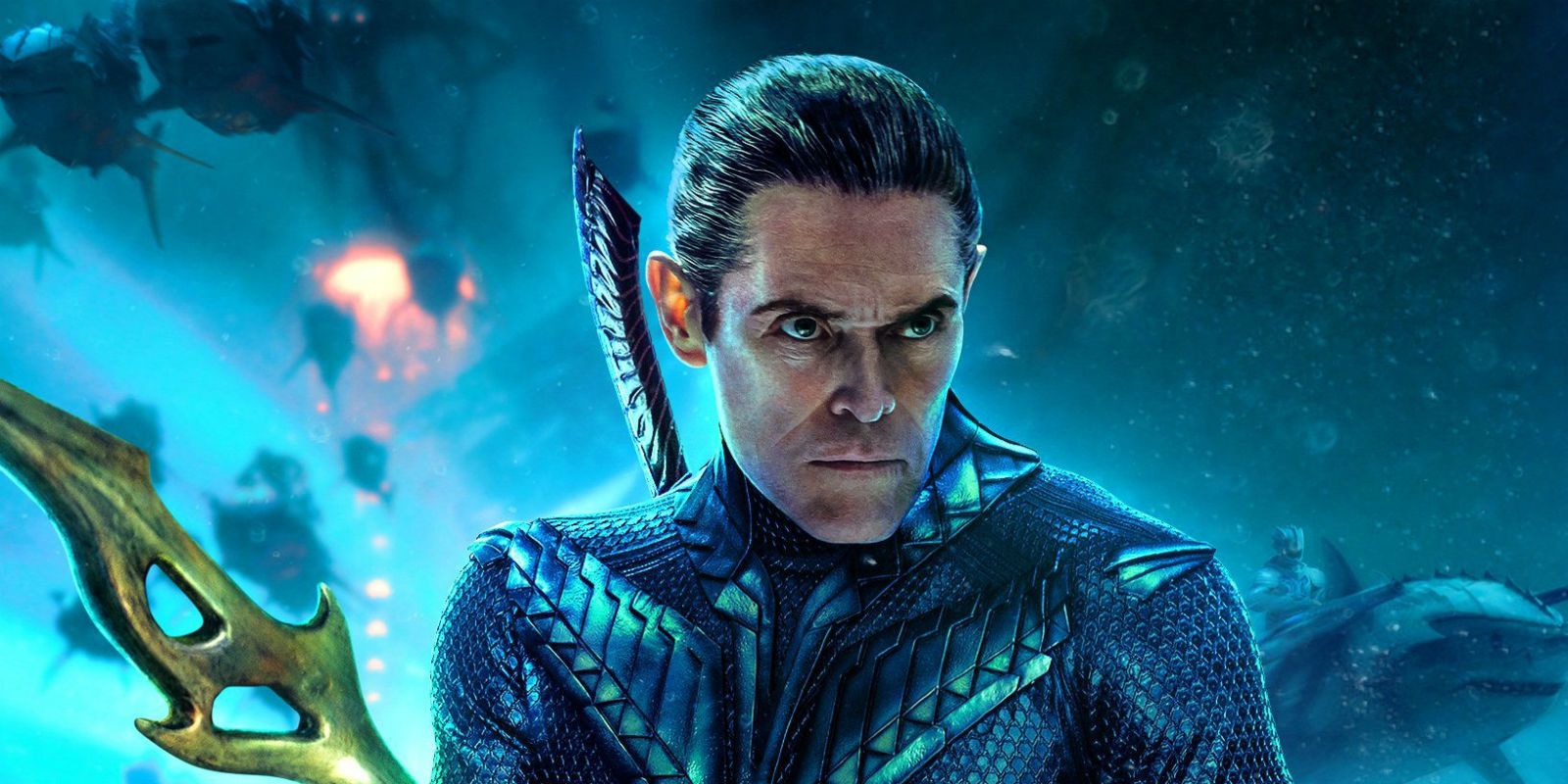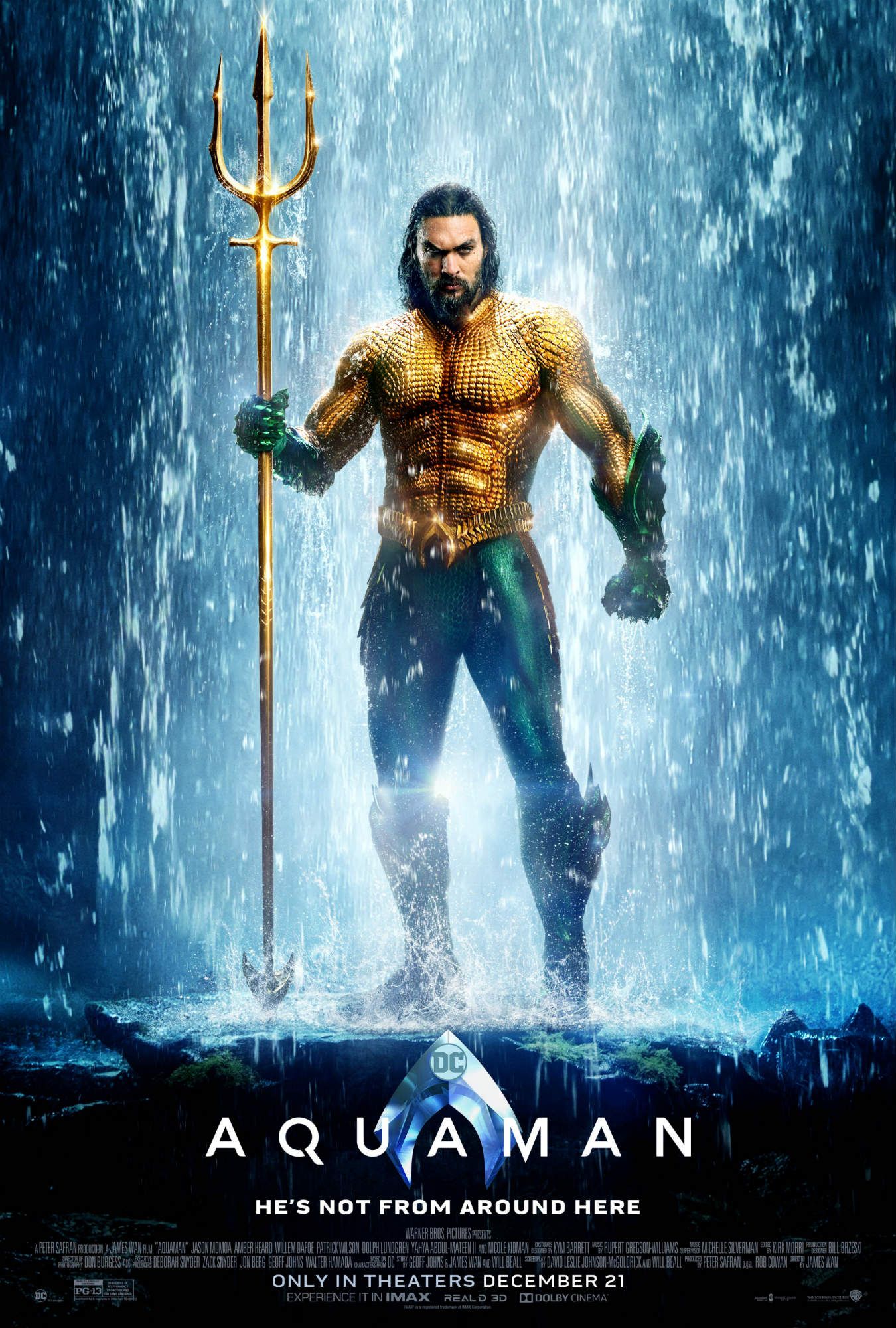Willem Dafoe is no stranger to superhero movies, having played Norman Osborn in Sam Raimi's Spider-Man and even once being considered to play the Joker in Tim Burton's Batman. Now, in Aquaman, Dafoe is distancing himself from comic book villains and, instead, aiding the rise of DC's next live-action hero.
In Aquaman, Dafoe plays Arthur Curry's (Jason Momoa) protector and guardian - while also doubling as a good-intentioned traitor to King Orm (Patrick Wilson), despite the dangers. During a junket interview for Aquaman, Dafoe spoke about his reentry into the world of superheroes after a sixteen-year hiatus, how director James Wan played a major role in convincing him to star in the film, and why he enjoys dipping back and forth between big-budget blockbusters and small-scale films.
Related: Patrick Wilson Interview: Aquaman
So, you're back in the superhero genre after playing Norman Osborn in Spider-Man. What's it like being back?
You know, it's different. I'm different, the world is different, the directors are different. Different character...
Speaking of directors, what was it like working with James?
Great. James, I loved. He was very enthusiastic. He was a huge draw for me coming to this project. His movies are very precise. You can really see a very sure director's hand, so it was very curious to think that- certainly he worked on a big scale, but nothing this big, plus a fantasy film. So, he was great. He's incredible, he's got an incredible energy, he's got an incredible film culture; he's like a little kid, as far as his enthusiasm, and he's rigorous enough that he can delegate well and get the overview. But he's always there. With a film this big, where you have so much effects to set up and you have to do so much planning - you really need a general. And, sometimes, people have to delegate too much and they lose touch with the actors, but he's right there with you. He's very- he doesn't miss anything.
So, you play Vulko, who's sort of like this guardian character to Arthur.
Right.
And you played a similar type of character last year in The Florida Project with Mooney.
[Laughs] I guess I'm getting a little older or something. I'm getting those guardian roles.
Well, is there something about that type of role that you're drawn to - like that sort of protector?
That's a nice way to way to think of it. You know, I never made a connection to those two things, because they're colored by so many different- you know, they're very different kinds of movies. I think it's a product of- maybe a product of age, I guess, that you get to the point where you're playing authority and fathers and that sort of thing. So, in that world are also guardians.
Do you notice a difference jumping back and forth between these big-scale- these big action movies and kind of a smaller scale. Is there a different approach you take?
Very. I mean, you know, the way of making a movie always is colored by, of course, its economics and its also intentions and what kind of movie you're trying to make. Certainly, a movie like this, there has to be such incredible planning. The pace is very different, the coverage is different, the resources are different. With a smaller film, it's a little lighter, it's a little looser, there's less delegation, there's less sampling to create things that are developed further in post-production. So, they're very different. But I like going between worlds because it always brings you back to each time you're doing something. You don't fall into patterns, and you kind of have- it becomes first time, every time, because there's no normal. And it's partly out of- it just happens naturally, as well. I've always kind of cultivated- tried to cultivate that. But, yeah, it works out sometimes to go from a big movie to a small movie. It's kind of not the best career advice all the time, but for me, it suits me very well.



